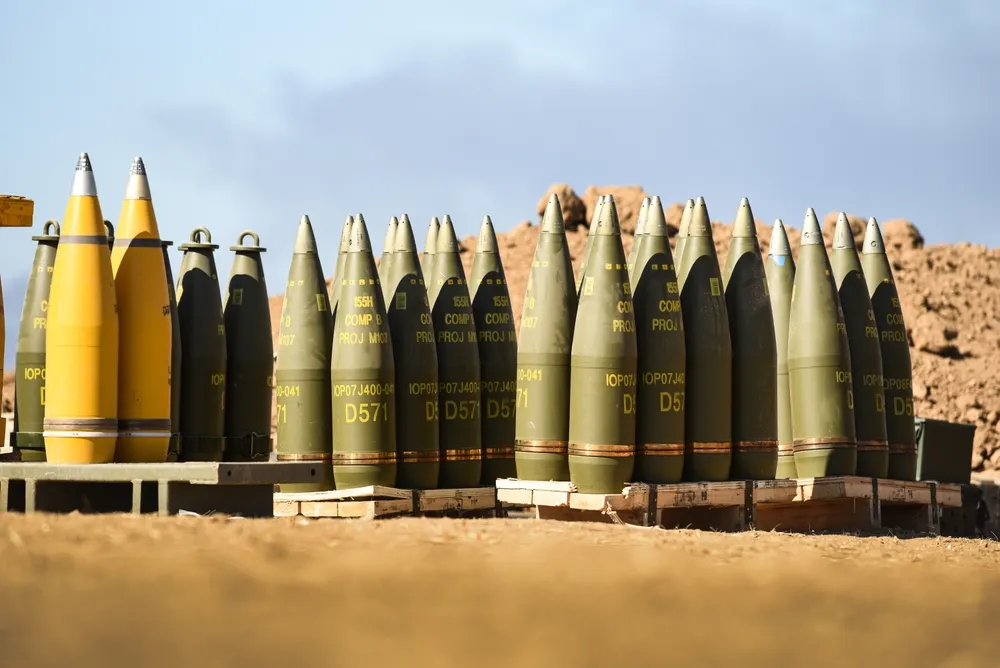Did the Navy and Air Force Incorrectly Store Munitions in the Middle East?

Storing weapons in the Middle East comes with a host of challenges, not the least of which are safety and security. An internal audit has found problems with how the U.S. Navy and Air Force stored munitions in the Middle East. Photo credit Gal_Rotem / Shutterstock.com.
On Sept. 5, the Department of Defense Inspector General announced the release of the results of two internal audits, according to a press release. These audits focused on munitions storage practices in Jordan and Bahrain.
They were the last two audits in a series of four the DOD conducted to determine if the U.S. Air Force and Navy properly stored munitions to meet safety and security requirements.
One audit found that the Air Force did not properly store munitions at its facilities in Jordan. The Navy did not violate storage procedures, but auditors recommended improving security procedures.
Munitions in Jordan
In Jordan, the Air Force manages munitions storage via the 332nd Air Expeditionary Wing. Inspectors concluded that the Air Force did not comply with net explosive weight requirements at some storage facilities due to miscommunications between personnel, according to the audit report. The fact that they only reviewed explosive weight requirements annually contributed to the problem.
In their report, the DOD recommended a quarterly review of explosive weight totals in all munitions storage structures. They also recommend that the DOD’s Explosives Safety Board issue quarterly guidance to weapons safety managers so they can verify that they have the correct explosive weight totals.
The Air Force and the Explosives Safety Board have agreed to the audit’s recommendations.
Munitions in Bahrain
In the Naval Support Activity in Bahrain, individual units are responsible for storing their munitions, with explosive safety officers in charge of safely storing explosives and Navy Security Forces officials responsible for the security, according to the Bahrain audit report.
During the audit, DOD found that the Navy officials at NSA Bahrain stored munitions according to safety policies. The Navy officials correctly maintained planning documentation, stored munitions in adherence to the approved explosive weight limits and even used lightning protection systems to protect munitions’ storage structures. However, the DOD recommended the Navy improve munitions accountability and security.
Navy officers did not consistently keep accurate inventory records, according to the Bahrain audit. They also did not always have signs in munition storage areas that clearly labeled it as a restricted area.
The audit also found that munitions with the same lot number were sometimes not stored together, making locating them quickly tricky for Navy officials.
Auditors recommended more oversight and guidance by the Navy units in Bahrain to ensure the requirements of inventory and signage posting procedures are met. Action by the Navy on these recommendations is pending.
Discover More Muck
Card Cracker Turned Carjacker Sentenced to Six Years
Report Strahinja Nikolić | Feb 28, 2025

Yakuza Leader Trafficked Nuclear Material, Narcotics and Weapons
Report Jessika Saunders | Feb 13, 2025

Weekly Muck
Join the mission and subscribe to our newsletter. In exchange, we promise to fight for justice.
Weekly
Muck
Join the mission and subscribe to our newsletter. In exchange, we promise to fight for justice.






